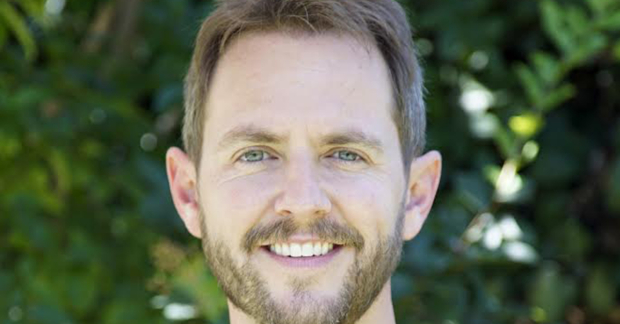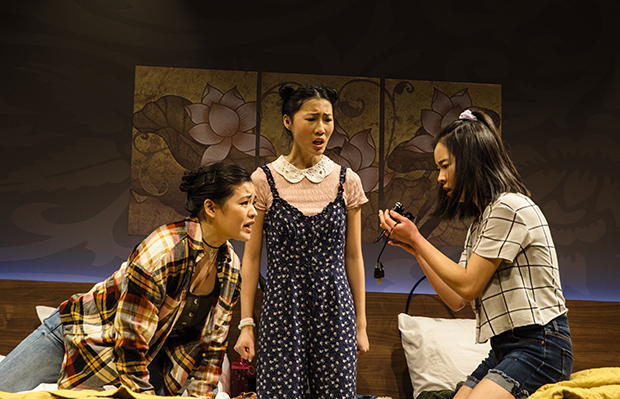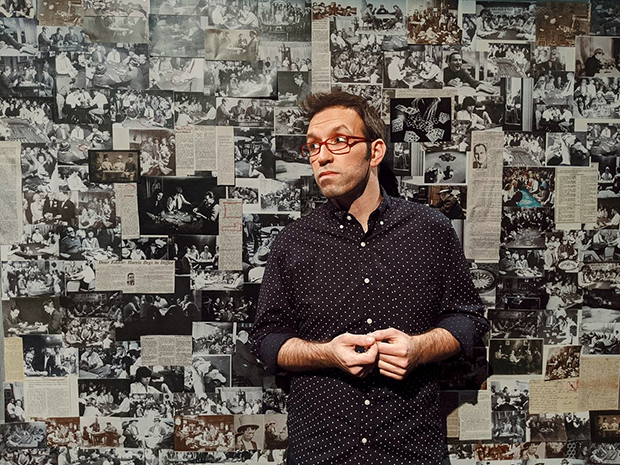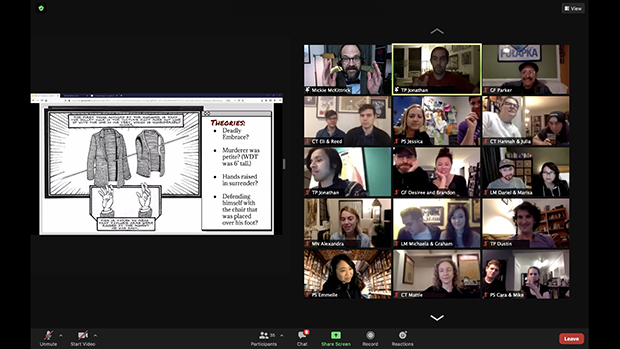Interview: Artistic Director Matt Shakman on the Geffen as a Hub for Interactive Performance
Shakman runs the Geffen Playhouse and its new virtual offshoot, Geffen Stayhouse.
The Geffen Playhouse in Los Angeles was in the midst of a busy spring season when the theater industry shut down last March. After having to cancel multiple productions in various stages of the process, the theater, led by artistic director Matt Shakman (WandaVision), quickly pivoted to virtual performance.
Utilizing a now-beloved "bad dad pun," the theater redubbed itself as the "Geffen Stayhouse," and became a hub for interactive shows, performed over Zoom and other platforms, with subjects ranging from magic to murder-mystery to cooking. The Geffen has become one of the most consistently productive theater companies in the country during the pandemic, and even as the Geffen takes baby steps back to live performance, it has provided Shakman and his team with a valuable knowledge base that they can incorporate when the curtains rise again.

(image provided by the Geffen Playhouse)
Tell me about the initial period last March when you had to shut everything down, and the decision to pivot to virtual performance.
Like everyone in the world, we were trying to figure out what was happening, how long this would last, and what we would do with our live productions. Theresa Rebeck's Bernhardt/Hamlet had just started rehearsals, and Anna Moench's Man of God was days away from opening. Both of those shows are wonderful pieces that ended up having to be canceled, and they were closed way too soon. First and foremost, we tried to figure out how to keep everybody safe. Once we had taken care of our employees and artists, we started thinking of what we wanted to be doing as an institution at this moment.
One of the things we wanted to do was reach out to our artists, our alums, and our audience, to stay in communication with everyone. We began something called the Geffen Stayhouse, which was a bad dad pun, but it's lasted and grown and become our banner. At first, it was creating short content. Kathryn Hahn created a Glengarry Glen Ross with her daughter, using American Girl dolls. It was a wonderful way to be in dialogue with artists we love and admire, ask how they wanted to process this incredibly strange moment, and put content out weekly to our audience to say, "We're still here and trying to make sense of the world we're in and provide entertainment."

(© Jeff Lorch)
How did you and your team develop the style of interactive, virtual productions that you have now?
Many of us have struggled with traditional theater online. Things that have tried to ape what we do in the actual theater have been less successful, to me, than things that acknowledge the weirdness of the situation and say, "This is how I'm going to create a connection." Helder Guimarães had this idea that he might be able to do magic from afar. He'd send some things in the mail to someone and they would have a one-on-one experience. I said it was a great idea and asked if we could scale it up.
We gathered everyone together really quickly to figure out how many people we could actually engage, and it set the template for what we've been doing, which is to say, "How do you reach out of your computer into someone's home and make them feel like they're having a theatrical experience when they can't be in a darkened theater?" Part of that was interactivity, Helder's idea of sending a box so you had the magic happening in your hands, and part of it was authenticity, you were hearing a story from an amazing storyteller and there was something in that to pull you in. All of the shows that have gone after that have been very different, but at their core, they're about authenticity and interaction.
We've tried to continue that in different ways. After The Present, Helder did a show called The Future, which was a littel more ambitious. We had Sri Rao's Bollywood Kitchen, Inside the Box with David Kwong, which was a history of puzzles, and Citizen Detective, which was a great send-up of our obsession with true crime by Chelsea Marcantel. [Next is Someone Else's House, an interactive horror play by Jared Mezzocchi.] It's been a great time for us at the Geffen to continue to do what we do, eight times a week.

(© Catarina Marques)
What have you noticed in terms of audience development?
It has broken down borders in a wonderful way. We've been able to perform for people in every single state, and I think it's up to 40 different countries. Reviewers from the New York Times and Washington Post are attending on opening night. Somehow, we're more connected to the theater world than we have ever been, and I have to say, it feeds the soul of everyone at the Geffen. We have all picked up new skills in technology and cameras and sound in order to make theater at this time, and it has allowed us to do all the things we love to do, even though this virus has tried to make that near-impossible.
What does the future hold for Geffens, Playhouse and Stayhouse?
The future has been unknown for such a long time that, as we launch a new [Stayhouse] show, we say, "The world could open up again, and this could be irrelevant. Do we still do it?" And we say "Yeah, let's do this," because we hope it will provide joy. We're putting more [Stayhouse] shows together now, and we're preparing for reopening. We hope it will be this fall, but we don't know. So we work on parallel paths. I don't know if they can continue side-by-side or if there's a hybrid format as we start to take our baby steps back into live performance, but we're open to exploring all of those things.
I'm also excited for a future where maybe half the audience is ready to be there in person, and half the audience is ready to have a virtual experience, and the nature of a show changes because it's for two different audiences at the same time. We're preparing for that option, as well. And we're considering streaming productions for people who want to buy tickets and support but aren't ready to go in person, which may be more of a stopgap until folks are ready to come back. All of those things are part of our plans, and I think that every theater in the country has to be super flexible and ready to pivot as needed to address the situation as it develops.

(Illustration by Rick Geary)







